The Second Mrs. Astor Read online
Page 3
Faint lines fanned outward from the corners of his eyes, crinkling his tan. Deeper lines bracketed his mouth, that long moustache, and she found herself looking at them and admiring them and thinking, How well his face suits him.
The diamond in his stickpin sparked a sepia rainbow.
The colonel cleared his throat. “I was just contemplating what a pleasant evening we’re having. How fine the night is, the gloaming, when I saw you here. I didn’t mean to intrude.”
She smiled. “You’re not intruding, Colonel Astor.”
“Ah,” he said. “Very good.”
A pair of crickets began to exchange songs, hesitant at first, gradually throbbing stronger. Madeleine clasped her hands over her elbows, then dropped them again when she realized she was wrinkling her dress. “I was listening to the music. I think I got a bit lost in it.”
He cleared his throat again. “Do you like opera?”
She thought, surprised, He is nervous.
She said, “We saw The Tales of Hoffmann last year, in Paris. Have you seen it?”
“Ages ago. I don’t remember most of it, I’m afraid.”
Her smile turned rueful. “I didn’t understand most of it,” she admitted. “But I enjoyed the production.”
He nodded, looked away. Behind him, the diaphanous ghosts lingered in the dark, drinking their sparkling wine, chortling. Above them both, the stars began to wake, a handful at a time, right above their heads.
The colonel seemed in no hurry to speak again, but neither did he leave; Madeleine cast about for something more to say. “This is the first time I’ve seen you in Bar Harbor, sir. I don’t believe you visit often?”
“No. I’ve been here before, naturally. Friends and extended family, all that. But Newport is . . .” He paused, frowning.
“Yes, it’s—”
“My customary summer home.” His gaze angled back to hers. “Yours is here, however?”
“Ever since I can remember.”
“And you . . . like summering here?”
“Well.” She lifted an open palm to the air. “It’s all I’ve ever known.”
“Of course.”
Silence again. She regretted now giving away her glass of champagne, because at least then she’d have something to hold in her hands, something to do besides stare up at him and feel gauche.
She said, “I’m sure it’s nothing so excellent as Newport, though. I’ve heard the cottages there are all fashioned of marble and gold, inside and out, like the temples of the gods crowning Mount Olympus.”
He ducked his head and smiled at last, rubbing a thumb along the line of his jaw. “Some of them are, perhaps. Certain families seem to take pleasure in that sort of thing. But I think most of the homes are more limestone than marble. Plaster and brick. And cuivre doré—only gold leaf, I’m afraid.”
“But even so—like heaven, all white and blue and gold.”
“I suppose that was the idea,” he said seriously.
“How resplendent it must be.”
“Yes,” he said, as if he’d never considered it before. “Yes, Miss Force, it is.”
Beyond the trees and shrubs and heavy-headed flowers, a dinner bell chimed. They both glanced toward the brighter heart of the garden, where all the tables were laid, then back at each other. Without a word, Colonel Astor offered her his arm.
Madeleine took it. Her gloved hand lay small and curved against the black of his sleeve. Her head reached just above his chin.
“Speaking of the theater,” he said, walking slowly beside her, “I appreciated your performance last night.”
“Oh?”
“You were . . . enthusiastic.”
“Oh.” She laughed, mortified. “I know I’m not terribly skilled, but I don’t seem to ever lack enthusiasm. Things were going all right, I think, until I forgot my line.”
“Did you? Forget a line?”
“You must have noticed. Everyone noticed.”
They stopped. He turned to her without releasing her arm.
“What I noticed was how committed you were to your role. How you made me believe in her tragedy. Her great loss. It seems to me that’s the most valuable skill one might have on the stage, the ability to convince the audience that you inhabit the truth.”
She searched his face for any sign of teasing, but he only looked back at her with that unwavering focus, in shadow now, the gloaming he had admired before fading into a darker, deeper night.
The wind pushed again and her skin tightened and Madeleine wished very much for a shawl, or a witty thing to say, or for her sister’s infinite poise.
“Forgive me.” The colonel shook his head, scowled down at the path. “I, ah—I’m not expressing myself well.”
“No, you are. I’m glad for your honest opinion, thank you. And for the pansies,” she remembered to add. “They were lovely.”
“Miss Force,” he said, his lashes lifting, and through the dusk she could see only that his eyes were darkened too, fixed on hers. “Please never doubt I’ll give you my honest opinion.”
“Colonel Astor,” she replied, “please believe that I shall never doubt you.”
It seemed, astonishingly, that she had found the right thing to say after all, because his smile returned, now easy and slight, filling her with a warm buzzing wonderment.
The dinner bell chimed again, three melodious peals. Neither of them moved.
She thought, This is what it’s like to feel understood.
They strolled on, and every glittering soul they passed stopped talking, and stopped drinking, and eyed them askance as they went by.
* * *
They were not seated at the same table. They were not seated, in fact, anywhere near each other, but on separate islands of grass, in separate sections of the garden, with beds of larkspur and poppies between them, and a solitary weeping birch that draped its long branches like a curtain off to the side.
She could still see him, though. Past the birch, past the other guests, through the shadows. Sometimes she thought she heard him, too.
She had been placed between the ginger-haired son of a nouveau riche shipping and forwarding importer—not coincidentally, the same profession as her father’s—and a giraffe-necked boy from an old and affluent Philadelphia family. On the other side of the ginger-haired boy sat Leta Wright, one of Madeleine’s better friends, who was brash and spirited and not in the least afraid to speak her mind.
“Harold,” she was saying to the ginger-haired boy. “Did you forget to do something this morning?”
The ginger boy sat up taller in his chair, looking nervous. “Um . . . did I?”
Leta smiled at the air straight ahead of her, a sweet and dangerous smile, as she picked up her claret. “You attended the play last night, did you not? You saw me as Queen Gertrude?”
“You know I did, Lettie! You know I’d never miss seeing you onstage!”
“And did you admire my performance?”
“Of course I did. Naturally!”
“That’s what I thought.” She took a sip, aimed the smile at him. “So imagine my surprise this morning as I was receiving posy after posy from all sorts of lovely boys to congratulate me and I realized, Harold, dear, that none of them were from you. Not a single sorry petal.”
“Um . . .” said Harold again.
“Ollie sent flowers. Morris sent flowers. Ernest and Walter Owens sent flowers, and you know they hardly even like me! Valentino Louis sent daisies, my favorite.” She faced him directly. “But nothing, nothing, from you.”
“Lettie, good God, I’m so sorry, I just—”
“Maddy,” she said, leaning around him, “don’t you agree it’s nice to get flowers from boys who say they admire you? Don’t you rather expect it?”
“Well—”
“I’m sure you got flowers this morning from admirers of your Ophelia, didn’t you?”
Madeleine pressed her lips together, embarrassed, then admitted, “Yes.”
“You
see, Harold? It’s not such a terribly onerous task. Who sent yours, Maddy? Please do not tell me it was our boy Harold here.”
Madeleine looked down, tapped her fish fork against her plate. She’d hardly sampled the bouillon, or now the salmon tartare; she felt simultaneously out of breath and out of room inside, as if her corset was too tight. “No. It was Colonel Astor.”
Leta paused. “It was who?”
“John Jacob Astor.”
“Gosh,” said Harold after a moment, sounding impressed.
Leta clapped her hands together in delight. “How exciting! What sort of flowers were they?”
“Pansies.”
Her friend made the connection instantly; her brown eyes widened. “Wonderfully perfect! Were you thrilled?”
“I was . . . surprised.”
“Well, then, was your mother thrilled, at least? What did she say?”
Madeleine poked her fork at the tartare. “Not very much. But I suspect she’s already grappling with the agony of who will design my wedding gown.”
At this, the Philadelphia boy stirred at last, turning to stare at her with hooded eyes. “What’s that? You and Colonel Astor? You can’t be serious.”
“Why not?” Leta challenged. “Maddy’s good enough for a king, much less a colonel.”
“But not a Knickerbocker,” he said. “Trust me. Anyway, he’s too old for her, and he’s divorced.”
“He’s not so terribly old,” Leta said.
“And lots of people get divorces,” added Harold. “My uncle and aunt did, and it was fine.”
“Because they are not Knickerbockers,” said the other boy, patient. He swallowed a bite of the vinegary salmon. “I don’t expect you to understand, I suppose.”
“I think I understand snobbery quite well,” Leta retorted. “There’s nothing wrong with Colonel Astor sending Maddy flowers. I think it’s romantic.”
“I think it’s onion-headed,” the boy said.
Leta gave an incredulous laugh. “So that’s it for you, then? You’ll never fall in love with someone unexpected? You’ll never marry anyone outside of your own little world, never ever?”
The boy shrugged, returning to his fish. “It’s simply not done.”
Madeleine sat back in her chair, hands on her lap, and secretly wished for the Philadelphia boy to choke.
All around her conversations bloomed, swelling and falling like the constant waves that scored the harbor. Beyond them rose the murmur of the breeze through pine needles and leaves, and the canticles of the crickets tucked beneath shrubs, and the dulcet notes of the string trio floating beneath the arc of the luminous blue night.
Through it all, she listened for the singular baritone of that older man, that king of the Knickerbockers, who had sent her purple flowers, and had escorted her to her table, and who’d told her not to doubt.
And she was out of breath.
CHAPTER 3
Pansies.
Cosmos.
Delphiniums.
Asters.
Snapdragons.
Bellflowers.
Tulips.
Forget-me-nots.
Upon reflection, it strikes me as somewhat macabre that the joining of my life with your father’s began with flowers. It ended with flowers, as well. To be clear—it ended on that frigid, starry morning atop the skin of the Atlantic. But as I sit here at my desk, all I can smell is lilies: thousands of lilies, ornamenting his casket, lining the church, crushed beneath the wheels of the undertaker’s wagon, the hooves of the black horses, as somber-faced strangers standing alongside the roads watched and tossed ever more flowers at the procession passing by.
Even on the train that carried his body from Rhinebeck to Manhattan: lilies.
That stench. That overwhelming, sickly sweet stench.
I don’t think I can bear to be around lilies ever again.
July 1910
Bar Harbor
The handle of the racquet bit into her palm, the leather strap wrapped around it digging rough into her skin. But it was a good kind of rough, necessary, and as Madeleine swung her arm and the catgut strings connected with the ball, the force of that connection bounced back through her, powerful and jarring, through muscle and bone, lungs and heart, all the way to her feet.
Her momentum kept her leaping forward, great huge strides that she checked by twisting sideways, a swift and dangerous dance in long skirts, ignoring the pain of her corset biting into her.
The ball streaked low across the net. Her opponent lunged and swung and missed.
“Game and set,” called out the chair umpire, “to Miss Force!”
A mustering of applause lifted up to the overcast sky.
Madeleine bent her head to wipe the sweat from her eyes, then turned and sketched a quick curtsy to the Swimming Club spectators, arranged in pastels and parasols in the lawn chairs lining the length of the tennis court. As she crossed to the net, she swapped her racquet to her left hand to shake with her right.
Her palm smacked into the other girl’s.
“Well done,” Stella Mitchell puffed, still breathless from her final sprint.
“And you.”
Stella was the sort of girl Madeleine always privately envied, because she was the sort of girl that Madeleine feared she would never be: refined and chic and creamy cool, no matter the circumstances. She looked like a Gibson portrait of a girl, a poet’s idea of a girl, one who would be perfectly content to pass the span of her days reading upon a chaise lounge, or embroidering samplers, or contemplating the number of tumbling, adorable children she would someday produce. And perhaps she was those things—Madeleine had known her since Miss Ely’s, and heaven knew they’d both embroidered enough samplers—but in tennis, Stella became ruthless. Beating her today was the figurative feather in Madeleine’s cap. It hardly ever happened.
“I was lucky this time,” Madeleine said, stepping back.
“Perhaps it was that your lucky charm lingered nearby,” Stella said, with a significant look past Madeleine’s shoulder.
Madeleine wiped her eyes again, hoping that her face didn’t look too red, that the pins in her hair had held and that her armpits weren’t showing their damp through her shirtwaist. Because, yes—there he was, standing at the end of the row of chairs, a walking stick slanted to the ground in one hand; in the other, the end of a leash connected to a large, tan dog.
Their eyes met. She nodded, and the colonel nodded, and the dog looked at her and furrowed its brow.
It had been over a week since she’d seen him last, and even then it had only been in passing, as they rode in opposite directions past the Mount Desert Reading Room. Yet the daily arrival of flowers had not ceased, each one accompanied by a card bearing simply his initials.
Even though he hadn’t come to call in person, every morning Mother practically hummed with anticipation.
“They’re just flowers,” Madeleine had said at breakfast three days ago.
“Colonel Astor is neither blind nor imbecilic,” Mother had responded, examining the fresh arrangement of mums he’d sent with something close to hunger. She kept each new delivery beside her plate—as though they were for her, instead of her daughter—and throughout the meal she would gaze at them as raptly as if they whispered the answer to a puzzle that had long perplexed her.
Madeleine said, “I just don’t think we should get our hopes up. That’s all.”
Mother looked up. “Maddy, my love. Do you mean your hopes, or mine?”
Madeleine shrugged, uncomfortable.
“Because in this instance,” Mother went on, “your hopes are the only ones that matter. I trust you know that.”
“I have an idea,” Katherine had said. “Why don’t we just go and call on him?”
“Don’t be ridiculous,” Mother had sighed.
“Well, why not? It’s the twentieth century now, after all. I don’t see why we can’t at least drop by and leave our cards. Ask him what he means by sending all these silly f
lowers every single day. One would think he might have moved on to chocolates and jewelry by now.”
“Katherine . . .”
“My point is, we’re no longer bound by all those archaic rules hammered out by Mrs. Astor a generation ago. In fact,” Katherine finished, inspired, “there is no current Mrs. Astor. Not one who matters, anyway.”
And Mother had tilted her head to examine Madeleine, and Madeleine had examined her back and knew what exactly what she was thinking:
Yet.
“Miss Force,” the colonel greeted her now. He lifted the hand with the walking stick to tip his hat.
Madeleine strolled toward him sedately, casually, swinging her racquet by her hip in a slow, contained arc, the way she’d seen Stella sometimes do when talking to a beau. “Colonel Astor. I see you have a friend. Is it your dog?”
“She is. This is Kitty. Kitty, meet Miss Force.”
Madeleine had to laugh at the name. She came close and bent down, lifting her free hand. The dog leaned a little nearer and sniffed her fingers.
“Hello,” Madeleine murmured. “Hello, pup called Kitty.”
The dog—an Airedale, she thought—sat back on her haunches and gazed up at her with wary eyes.
“An outstanding game,” the colonel said. “There seems to be no end to your skills. Actress, athlete. What else do you have up your sleeve, I wonder?”
“Dog charmer, I hope,” she said, and smiled. “And you, sir?”
“Tennis dilettante.” He looked down and stroked Kitty’s head. The dog lifted her chin and began to pant. “Yachtsman. Adventurer, I’d like to think.”
“An interesting description. I’ve not met many adventurers before you, Colonel Astor.”
He arched an eyebrow. “But you have met others, Miss Force?”
“No,” she said, as placidly as she could manage with her corset pinching, her lungs burning, perspiration creeping down her back. “Actually, I have not.”

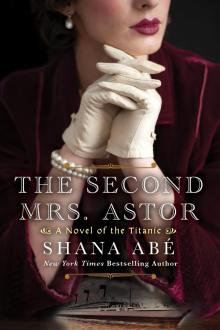 The Second Mrs. Astor
The Second Mrs. Astor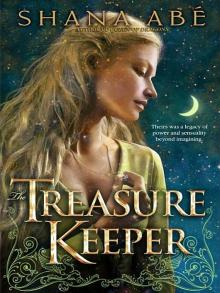 The Treasure Keeper
The Treasure Keeper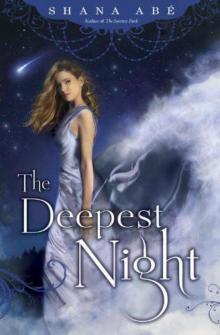 The Deepest Night
The Deepest Night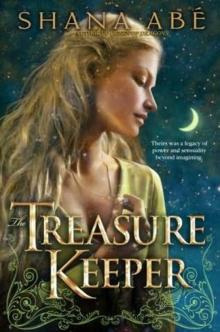 The Treasure Keeper d-4
The Treasure Keeper d-4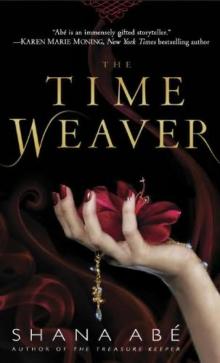 The Time Weaver d-5
The Time Weaver d-5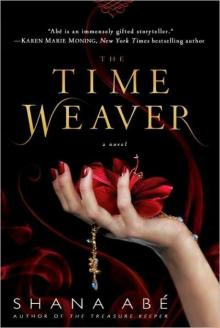 The Time Weaver
The Time Weaver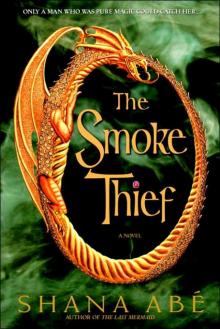 The Smoke Thief
The Smoke Thief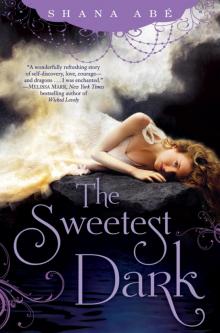 The Sweetest Dark
The Sweetest Dark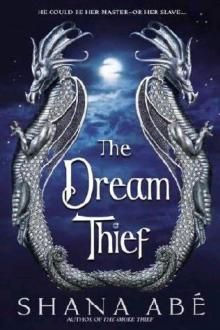 The Dream Thief
The Dream Thief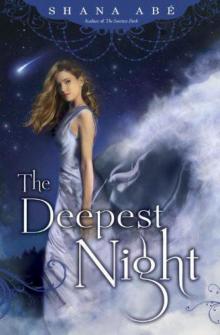 The Deepest Night tsd-2
The Deepest Night tsd-2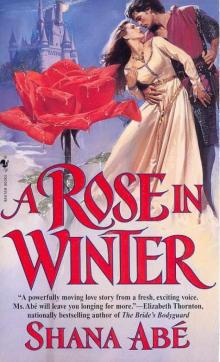 A Rose in Winter
A Rose in Winter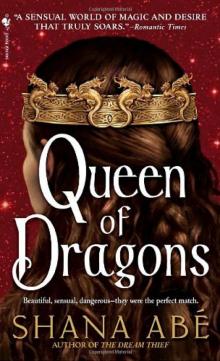 Queen of Dragons d-3
Queen of Dragons d-3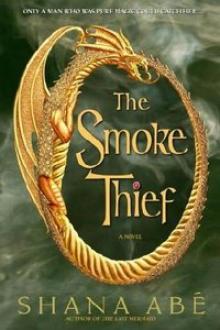 The Smoke Thief d-1
The Smoke Thief d-1